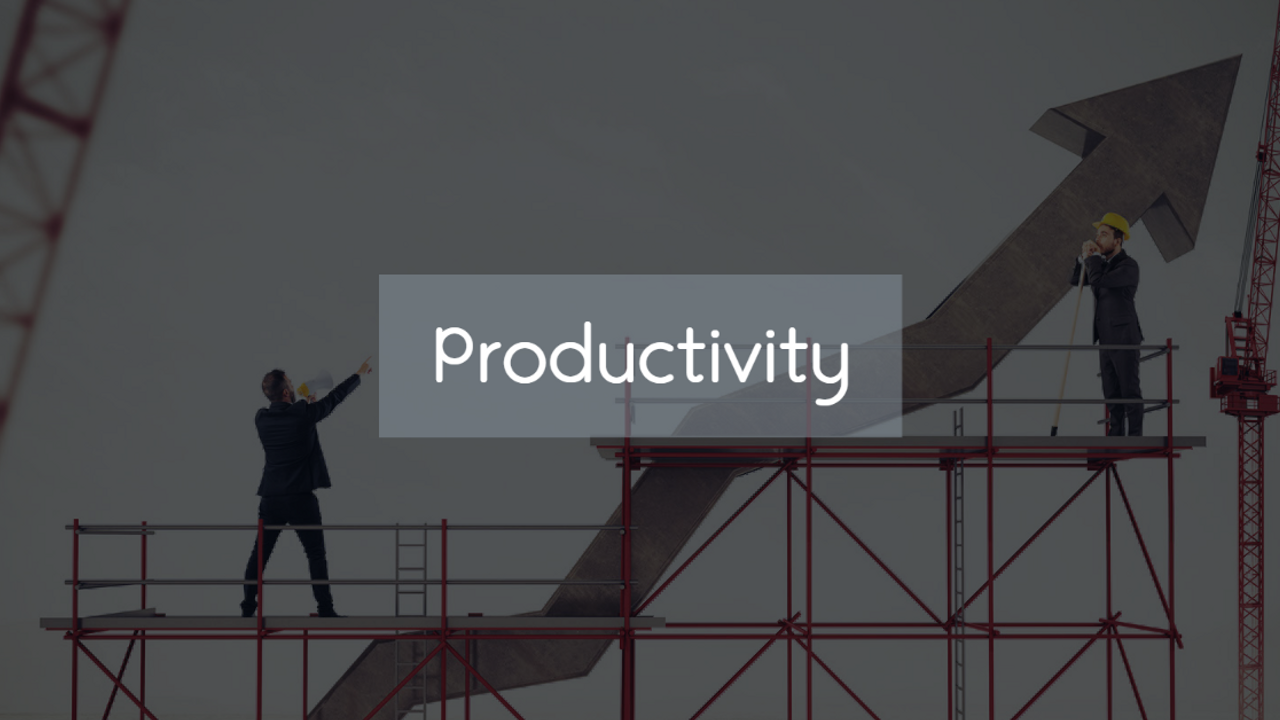What Does Productivity Mean for You?

Productivity feels like the ultimate buzzword at the moment.
No matter where you work or what you do, we are consistently chasing productivity.
We all want to be more productive, we want our teams to be more productive, our businesses to be more productive – you get the picture.
In a world where we wear busy as a badge of honour, are we obsessed with productivity?
In economics terms, productivity is quite simply Units of Output / Units of Input. So essentially, when we talk about productivity (or lack of), it isn’t that you are high achieving or lazy or how much caffeine you consume in the day; it is about how much you are getting out of your given project/to-do list by putting in equal or as little input as possible. It can be a positive figure or a negative one based on the Output/Input ratio.
Sounds simple enough, right? RIGHT?
Although the concept of productivity in a manufacturing unit might be more practical to implement, it’s not as straightforward in us as humans who are trying to get through the working day.
Productivity isn't a one size fits all approach.
Our unique personalities and rhythms and mindsets all contribute towards how we tackle our tasks.
But all is not lost.
Here are a few strategies on how we can become more productive and effective, without running around like a headless chicken and what productivity can mean for you.
It’s All About Biology
Well, firstly, our biological rhythms have something to do with that. Our circadian rhythm is a 24-hour cycle that helps the body detect day and night. We also have a daily cycle called an ultradian rhythm which is a 90-110 minute brain-wave frequency cycle. These rhythms dictate our important bodily processes like sleep, hormone secretion, and metabolism – all of which uniquely affect our physical and mental energy levels while working.
How does this affect productivity?
In Sex Sleep Eat Drink Dream, Jennifer Ackerman explains that the hormones we need to feel productive are released based on circadian rhythms – natural cycles our bodies go through to carry out daily functions.
Her research shows that our brains are most alert 2.5 - 4 hours after waking up. This is the time of day that your brain is equipped with the most productivity-related hormones to help you solve problems, generate ideas, and plow through meticulous work.
If you struggle to get started and stay focused on big projects, don’t wait to work on them. Take advantage of your body’s peak hours of the day.
Quality over Quantity
Also, productivity is about excelling at the tasks that generate the most value, not doing the most tasks. Research conducted by the psychologist K. Anders Ericsson revealed that the most successful musicians don’t practise more often than their peers. Rather, they practise more deliberately.
What’s the difference? Instead of practising every piece, they work on only the parts of their performances that are the most challenging. By investing their energy into mastering their most important work, they outperform their peers.
If you’re someone who spends most of your time picking up tasks on your to-do list, you might want to assess how well you achieved something rather than switching tasks constantly.
Studies show that when we switch from one task to another, we start to underperform and it affects our overall working memory.
Adopting the Right Mindset
Boosting your productivity can also come from where you are within your mindset.
There are three mindsets that you can adopt to try and get you working day further.
✅ The Ownership Mindset
What does this do?
Creates a sense of purpose, empowerment and higher levels of certainty.
How can you apply this?
Get creative! Focus on influencing things which seem out of your control. If you adopt a new strategy, make it your own.
What you own, you are much more likely to follow through on.
✅ The Optimistic Mindset
What does this do?
Moves you from problem to solution mode, increases your energy levels and motivation.
How can you apply this?
Practice getting pessimistic to identify risks, challenges and problems then switching to an optimistic mindset to generate solutions.
Your ability to quickly switch from one to the other is also a great strategy to feel happier.
✅ The Perfection Mindset
What does this do?
Balances progress WITH perfection.
How can you apply this?
Have progress and perfection work together rather than against each other. Being able to dial down your levels of perfection for a particular task allows you to move forward without sacrificing quality.
Download Prime Focus Today



